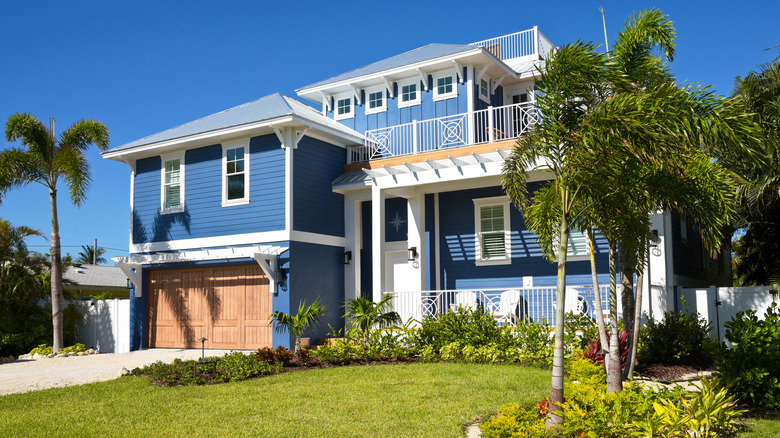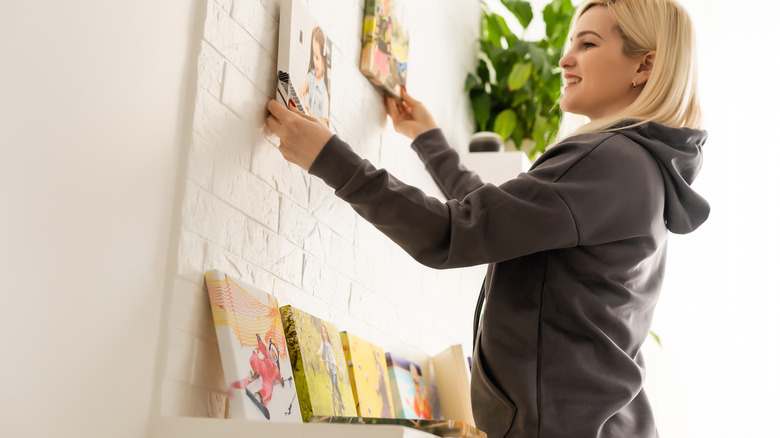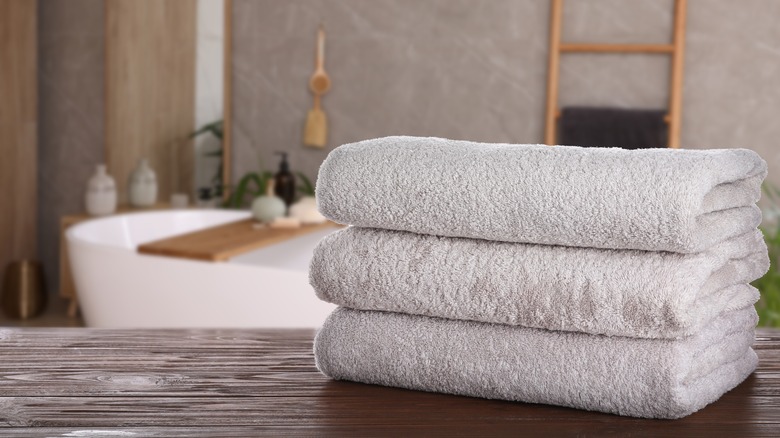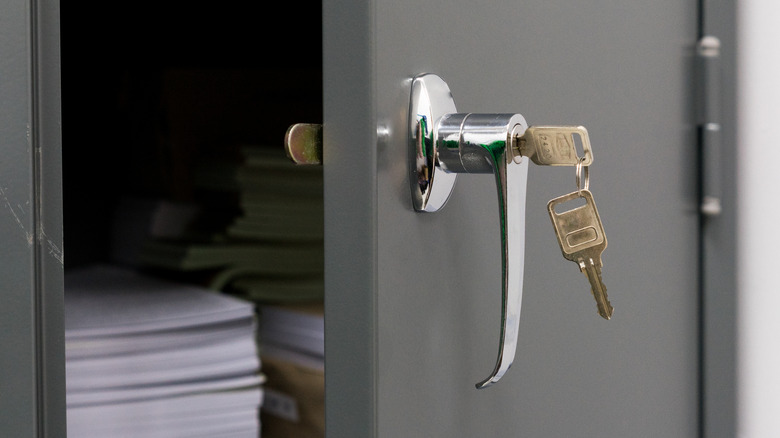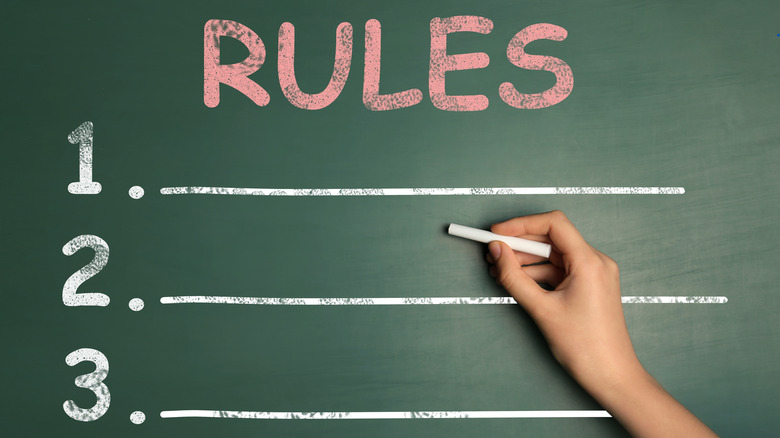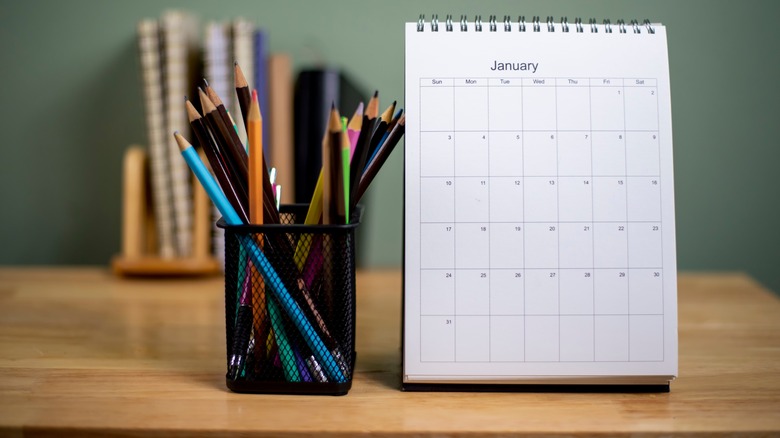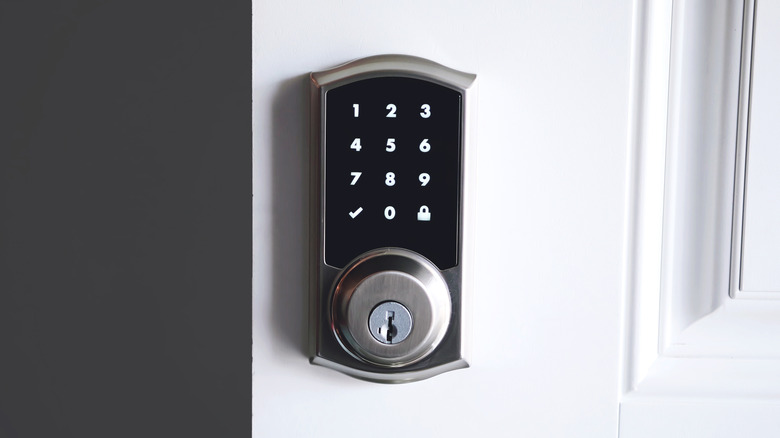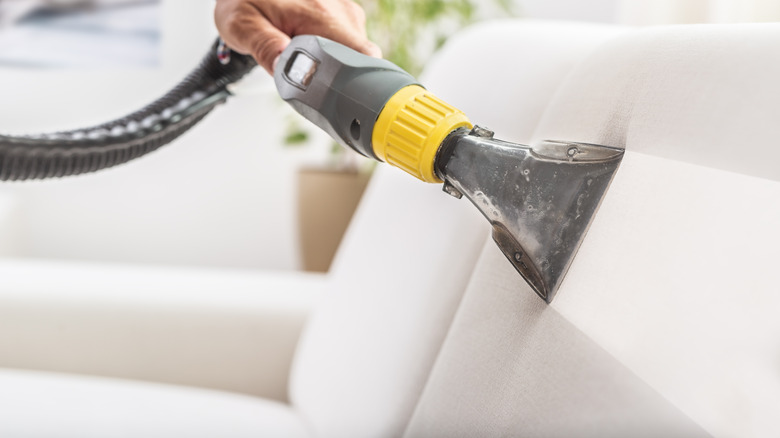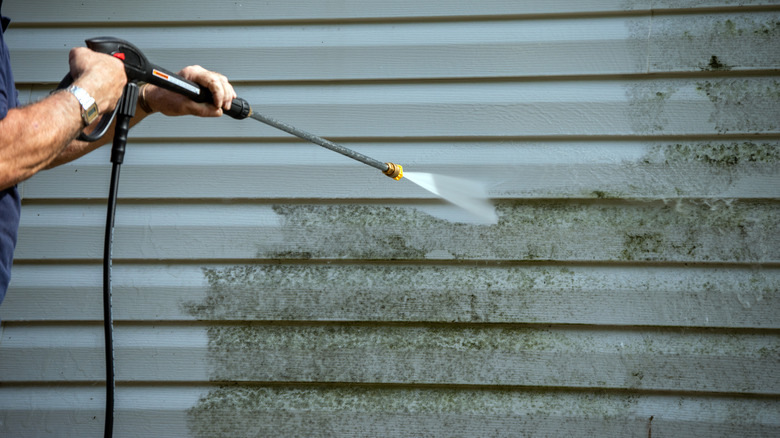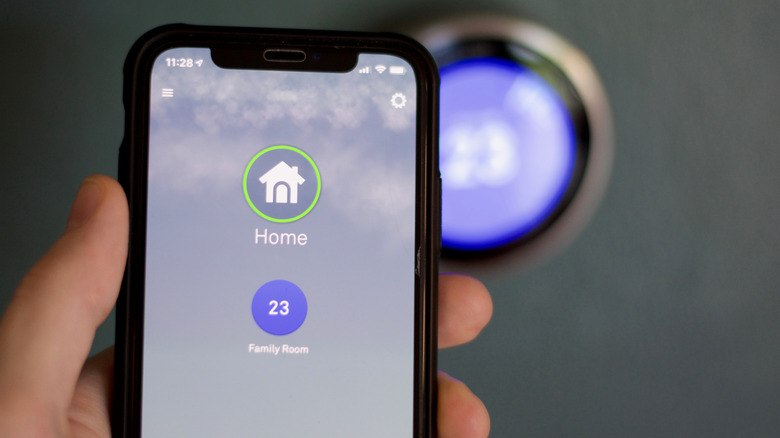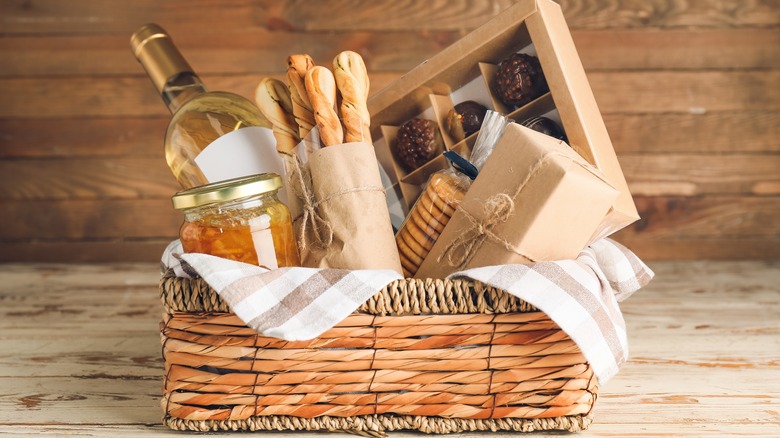How To Make Your Home A Vacation Rental
Renting a home for vacation has become seriously popular. Statista reports that the vacation rental industry is projected to reach $18 billion in 2022, with an annual growth rate of over 2%. With this knowledge in mind, turning your home into a vacation rental isn't a bad idea, especially if you live in an area that people like to travel to.
Sites like Airbnb and Vrbo have greatly contributed to this growth. Once you list a home with them, they take care of a lot of the details, making it easy for both homeowners to rent out their houses, and for vacationers to find a convenient place to stay. If you decide to take the plunge and list your home, you'll first have to take several steps to make sure your residence is up to speed with being a proper vacation rental. Once those steps are complete, you'll get the satisfaction of owning a home that's making you money.
Take care of the legalities
Just like any business, you can't simply jump in and start renting out your home. There are laws to be followed and it's important to take care of those legalities right off the bat. One step that is a must when renting your vacation home is a vacation rental agreement. As explained by iGMS, a vacation rental agreement is a signed contract between the host and guests that breaks down all the terms of the rental. Think of it as something similar to a short-term lease. Possibly the biggest benefit of having this agreement is the fact that there is little excuse for misunderstandings. As long as it's written clearly, a renter should fully understand what is expected of them during their stay. In the same way, as the host, you are promising certain things on your end as well.
The vacation rental agreement also legally protects both parties. If the contract is signed, it's legally binding and can be used as evidence if legal action is necessary. Sites like Airbnb and Vrbo have rental agreements available for hosts to use, which makes the process even easier (via Vacasa).
Do the research and list your house
The best way to understand how much you can charge for your vacation rental property is to do some market research. You don't want to undercharge or overcharge your guests, and of course, you want to do more than break even. To figure out the appropriate rate, Grand Welcome explains that you should first determine how much it'll cost you to run your home as a rental property. You aren't just opening the door — you'll need to pay for cleaning, stocking essentials, and many other things that go along with renting out your home.
To understand your expenses, consider the mortgage, insurance, permits, and home maintenance and repairs. Remember to factor in a property manager if you will be hiring someone to take care of issues when you're out of town (via Bankrate). After adding up all these expenses, you'll get a better idea of what you need to bring in each month in order to make a profit. Once you know your monthly expenses, you need to do market research to see what other hosts are charging for their rentals. The simplest way to do this is to go to vacation rental sites and find out. Look for homes in the same area as yours with similar square footage, number of bedrooms and bathrooms, amenities, etc. From there, you can get a good range to work with.
Remove personal touches
No matter how happy they make you feel, if family portraits and children's drawings are decorating your walls, it's best to take those down when renters are there. This can be a tough task. After all, you've worked hard to make your house a home. Still, when renting for a vacation, people need an uncluttered, clean place to call home while they're away from theirs. Alicia Lafon of Vacasa explains, "Guests want to feel like this is their private getaway, not a visit to someone else's home." To give your guests that feeling, remove photos, diplomas, and any memorabilia. Have a place, such as a closet, where you can easily stack the personal items you remove when the house is rented. When it's your time, in between vacationers, you can set things out again. Keep artwork, mirrors, and other universal decor on the walls.
Of course, a house still needs decorations to feel inviting, and neutral colors are the answer. Neutral walls help make the home welcoming and comfortable without causing the renter to feel like they are invading your space. The Back Store points out that neutral walls create a blank canvas, which allows other features in the room to take center stage. For example, a colorful Bohemian rug stands out in a room that's painted a light gray. Neutrals are far from boring. Think soft, subtle colors that can coordinate with just about any other color or style.
Create a list and stock up on essentials
Walk through the house, room by room, and make a list of what people will need while staying at your home. Let's start with the kitchen. One of the greatest benefits of renting a vacation home, rather than staying at a hotel, is that you can have some home-cooked meals. It's important that your guests have a stocked kitchen. Make sure there is a variety of pots and pans, as well as plenty of plates, cups, and bowls. Vacasa recommends stocking your vacation rental home with simple dishes that are all the same color, particularly white. Although it's tempting to save money by piecing together a mix-matched set of dishes, if your dinnerware is all white, it's easier to replace. Besides the obvious necessities, you'll also need some helpful small appliances for the kitchen, such as a microwave, coffee maker, and toaster.
Once the kitchen is complete, work on a list of bedding needs and essentials for the bathrooms. Your vacation rental needs plenty of sheets, pillows, blankets, plus towels and washrags. Again, white is helpful so they can be bleached — plus, everything will match. Make sure there are at least two sets of towels per guest for a two-night stay. A set of towels includes a bath towel, a washcloth, and a hand towel (via Skyline STR).
Have a locked space
While you want your guests to feel at home, you'll need a private, locked space where you can store things that aren't for vacationers. You can't take everything with you every time you leave the house and rent it out. A closet works perfectly for this job. Any closet will do if you organize it well. The Happy Housie suggests adding lower shelves to a closet to gain more storage space. You can also invest in some bins and baskets to keep like items together.
Things that might go into your storage closet are your own bedding, the personal decor you took down, and maybe some games and books you want just for the family. You could also use more than one closet in the house if it's helpful. No matter where you choose to store your personal belongings, make sure you invest in a good lock. If it's locked, the guests will know it's not for them.
Set up house rules
What do you expect of house guests? Even when renting, it's still your home and it's perfectly fine to let guests know what is allowed and what isn't. They may appreciate some advice. Usually, a list of this type is sent to the renters before their time at your home begins. That way, they know what to expect. Keep your rules friendly and not overly strict. If it's too formal, the home may not feel welcoming to your guests.
Some important thing to remember to include are the check-in and check-out processes, whether or not pets are allowed, and parking details, according to iGMS. Understanding those things ahead of time helps things go smoothly, and prevents guests from feeling confused on when to show up and when to leave. Next, they'll need to know some more details about how to handle their stay. While visiting, the house will be lived in. Guests will cook, make messes, sleep in the beds, and shower. Because of that, it's helpful to everyone if you include how to handle cleaning. It shouldn't be your guest's responsibility to clean the house; however, you can ask that they do a few things to make cleaning up after them a bit easier. For example, ask that they put all the dirty towels in a certain area so you or the cleaning service can get those going right away. It's also a good idea to let guests know where to take out the trash, and if it needs to go to the curb while they are staying there. Most guests are happy to help out, especially if working with you has been a pleasant experience. Remember, these rules save you and your guests time and aggravation, and protect everyone involved.
Create a calendar for the home
If you plan to still use the property yourself, you'll need to decide when you're comfortable having guests and when you want to be left alone. Setting up a calendar with the days you'll be at the house already blocked off is the easiest way to tackle this. Thankfully, sites like Airbnb and Vrbo offer calendars that do a lot of the work for you.
Vrbo explains that their calendar helps with setting taxes, discounts, and rates. It even assists in helping owners customize rates and minimum stay requirements. There may be different charges depending on the time of year, but with helpful tools that vacation rental sites offer, the calendar isn't as overwhelming. Once everything is set up, vacation calendars are a huge time saver. The calendar systems are automated, so when guests go to the site, everything is already laid out for them.
Invest in keyless entry
Without a keyless entry option for your home, you'll have to deal with keys going back and forth between guests and potentially getting lost, and worse yet, getting copied. Unless you want to change the locks every time, it's best to have a keyless entry for your guests. Visio Lending points out that keyless entry (smart locks) might be an expensive investment, but they'll save you time, money, and frustration in the long run. Plus, you can easily change the code between guests, which will give you peace of mind.
This system also helps your guests, because they don't want to have to deal with figuring out how to get the keys returned to you or worry about losing them either. Many keyless options offer the ability for you to control the locks from your smartphone, even when you aren't nearby. Talk about convenience. Another option is a lock box for storing the key, so it's easy to find and return. However, there's still a key involved with a lock box and that's not quite as convenient as keyless.
Deep clean the house
Before you have your first renter, give the house a good deep cleaning. You can do it yourself or hire a cleaning service. If you start with a dirty house, it'll be that much more difficult to clean up after your guests. Plus, don't expect guests to write rave reviews or return to your home if they find it dirty.
Deep cleaning is different than a regular cleaning — it's much more thorough. Think scrubbing baseboards and the inside of cabinets, rather than just wiping down counters. Care.com explains that it's best to start with a game plan on a deep cleaning day. Have all your supplies ready and make a list of which rooms you'll tackle first, what you want to accomplish, and so on. If your home is large, deep cleaning might not get done in one day, and that's fine, as long as you keep at it and stay on schedule. If you were renting a vacation home, you'd appreciate it being clean, and your guests will too.
Plan out regular maintenance for the home
Now that the house is all set for renters, you'll want to maintain it. Set up a schedule for weekly, monthly, and yearly home maintenance and cleaning. Grand Welcome recommends walking through the house each week to check for broken items, such as door locks and window blinds. During the walkthrough, change lightbulbs as needed, and refill things like toiletries and pantry items. Don't wait until a guest has to call you to tell you the bathroom light is burnt out.
Next, you can choose monthly maintenance or seasonal, meaning you'll have a list of tasks to do as each new season approaches. For example, there's snow removal, firewood stocking, and even seasonal decor. Guests will appreciate little things like a holiday wreath on the front door. Monthly or seasonal maintenance is a good time to test or replace smoke alarms and make sure they're working well. What you need to stay up-to-date on won't be much different than what you'd do for your own home anyway; however, you won't be able to take shortcuts or skip anything, because your guests will notice.
Consider a smart thermostat
With many different guests coming in and out of your home, it might take a toll on your heating and cooling bills. Using a smart thermostat allows you to control the temperature of the house remotely, and also helps guests if they're having trouble using it. MakeUseOf explains that the Nest Thermostat works with your smartphone, allowing you to adjust the temperature of the home even while you're away. In between guests, if you aren't staying at the house, you can set the thermostat at a temperature that allows you to keep the AC or heat running without breaking the bank and wasting energy. In the same way, you can heat or cool the house with a click of your phone if a guest is uncomfortable and asks for the temperature to change. You can also allow guests to control the temperature themselves by using the thermostat manually.
The best feature of the Nest may be the fact that it has several sensors that allow it to detect humidity levels and even the amount of sunlight coming into a room, which helps it automatically control the temperature while using as little energy as possible (via HowStuffWorks). Comfort for you and your guests, plus energy savings, makes a smart thermostat a must for your vacation rental home.
Make your place unique
You've got competition. Today, renting a vacation home is almost as common as getting a hotel room. To compete, your place needs to stand out and have good reviews. Close your eyes and imagine yourself in a home away from home, or think back to a time you rented a vacation house. Did it have everything you wanted? Although you can't always add things like a pool or sauna to your rental, you can create little touches that say a lot. Guests appreciate the thoughtfulness.
Areas like bathrooms are a great place to start. You can keep plenty of extra toiletries on hand, beyond the usual little bottles of shampoo and conditioner. How about a basket of fun body sprays, small deodorants, mini tubes of toothpaste, and extra toothbrushes? What a relief that would be for guests who forget their toothbrush or deodorant. The kitchen is another area you can fill with extra perks, such as setting up a cute coffee bar area. You can also consider the things people probably won't have packed, such as salt and pepper, sugar, plastic wrap, or aluminum foil. Try and make your guests notice you've thought of everything.
A very special touch — and admittedly a bit more work — is a welcome gift basket. Unique Gifter suggests you include at least one permanent item in your gift basket so they have a keepsake. After that, think locally-sourced treats, such as candy, coffee, or wine. A theme is helpful as well. You could do cheese and crackers with a bottle of wine, or a selection of BBQ sauces and supplies for grilling season. Have the basket ready for them when they walk in. These little extras are what will keep guests coming back to your vacation home.
